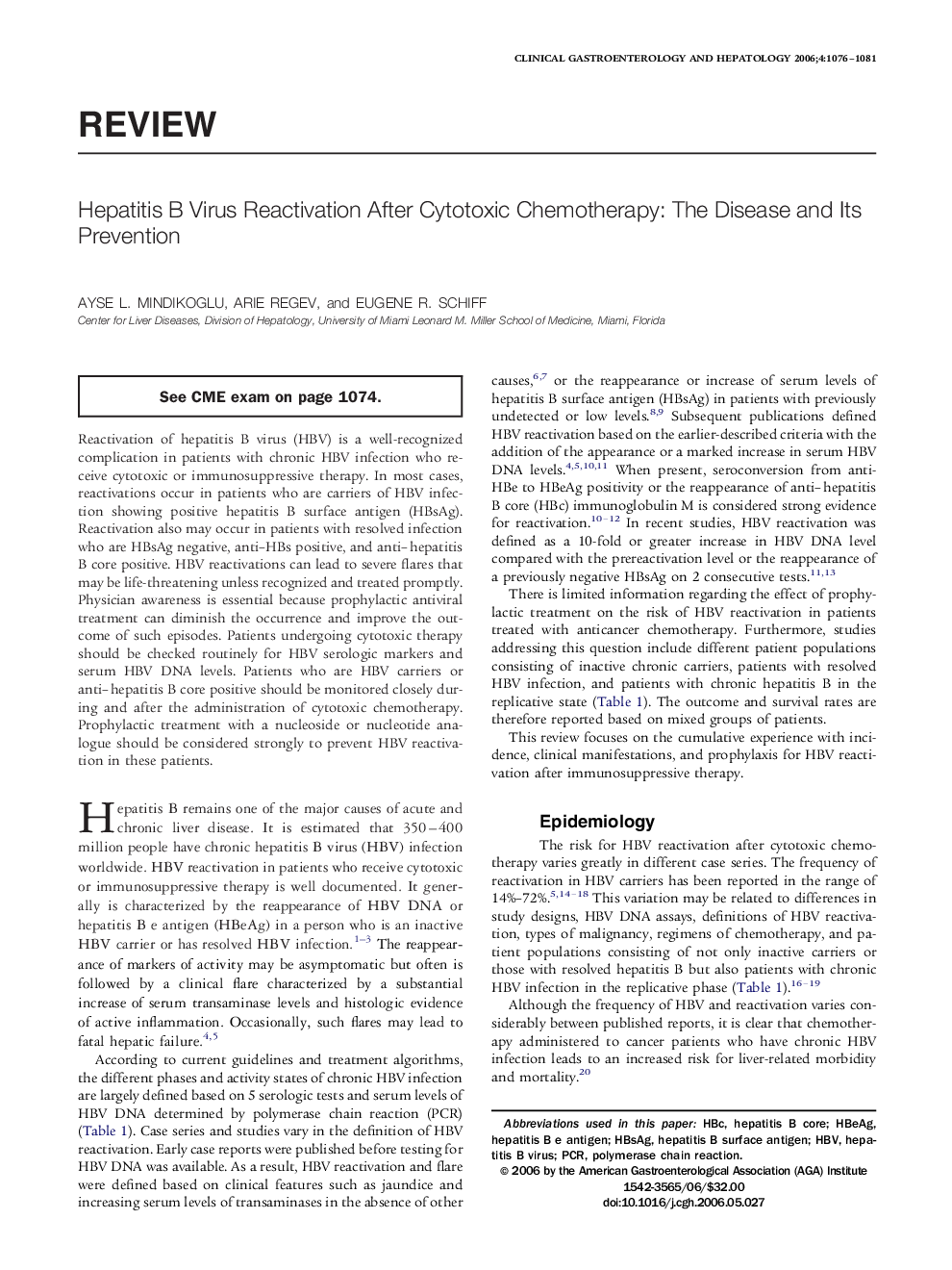| Article ID | Journal | Published Year | Pages | File Type |
|---|---|---|---|---|
| 3285905 | Clinical Gastroenterology and Hepatology | 2006 | 6 Pages |
Abstract
Reactivation of hepatitis B virus (HBV) is a well-recognized complication in patients with chronic HBV infection who receive cytotoxic or immunosuppressive therapy. In most cases, reactivations occur in patients who are carriers of HBV infection showing positive hepatitis B surface antigen (HBsAg). Reactivation also may occur in patients with resolved infection who are HBsAg negative, anti-HBs positive, and anti-hepatitis B core positive. HBV reactivations can lead to severe flares that may be life-threatening unless recognized and treated promptly. Physician awareness is essential because prophylactic antiviral treatment can diminish the occurrence and improve the outcome of such episodes. Patients undergoing cytotoxic therapy should be checked routinely for HBV serologic markers and serum HBV DNA levels. Patients who are HBV carriers or anti-hepatitis B core positive should be monitored closely during and after the administration of cytotoxic chemotherapy. Prophylactic treatment with a nucleoside or nucleotide analogue should be considered strongly to prevent HBV reactivation in these patients.
Keywords
Related Topics
Health Sciences
Medicine and Dentistry
Gastroenterology
Authors
Ayse L. Mindikoglu, Arie Regev, Eugene R. Schiff,
